20 years of Sacha Baron Cohen: all of his best political interviews
As ‘Who Is America?’ causes controversy, a look back over 20 years of the prankster’s greatest political hits
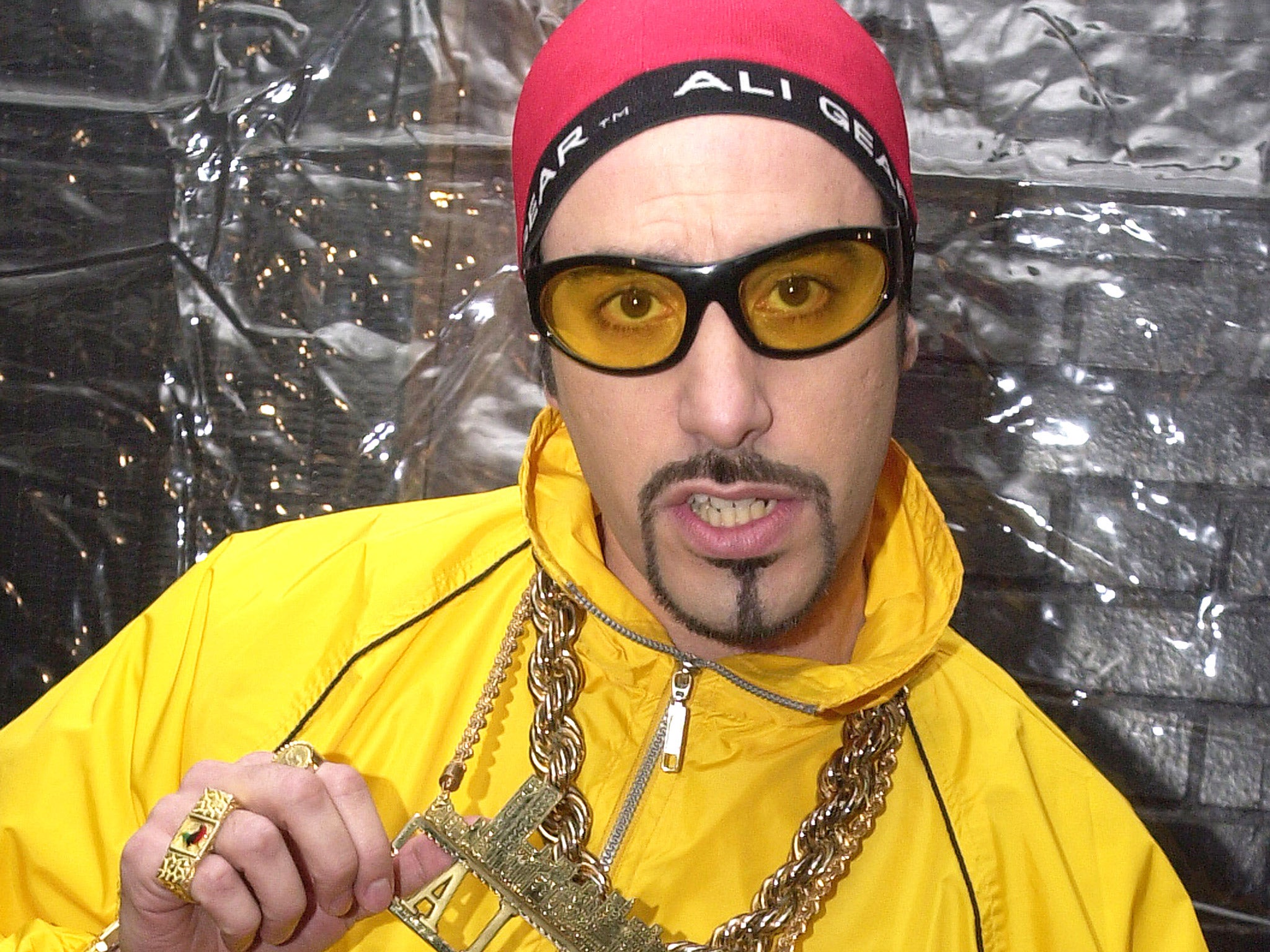
Your support helps us to tell the story
From reproductive rights to climate change to Big Tech, The Independent is on the ground when the story is developing. Whether it's investigating the financials of Elon Musk's pro-Trump PAC or producing our latest documentary, 'The A Word', which shines a light on the American women fighting for reproductive rights, we know how important it is to parse out the facts from the messaging.
At such a critical moment in US history, we need reporters on the ground. Your donation allows us to keep sending journalists to speak to both sides of the story.
The Independent is trusted by Americans across the entire political spectrum. And unlike many other quality news outlets, we choose not to lock Americans out of our reporting and analysis with paywalls. We believe quality journalism should be available to everyone, paid for by those who can afford it.
Your support makes all the difference.The premiere of Sacha Baron Cohen’s new Showtime series Who Is America? – showing on Channel 4 on Monday – got a publicity push far wider than the network probably imagined – thanks in part to the preemptive public statements (and disavowals, and condemnations) by many of its US political subjects. In the days since the network released a trailer for the series featuring Dick Cheney, several other prominent figures have stepped forward to claim they were duped by Cohen, including Sarah Palin, Roy Moore, former Arizona sheriff Joe Arpaio and representative Matt Gaetz of Florida.
But tricking politicians into embarrassing themselves on camera is old hat for Cohen; the British comedian has been doing it for two decades, usually in the guise of his patois-spouting B-boy persona, Ali G, and occasionally as his characters Borat or Brüno. Here’s a brief, hilarious and cringe-inducing roundup of some of his best and most controversial political ambushes.
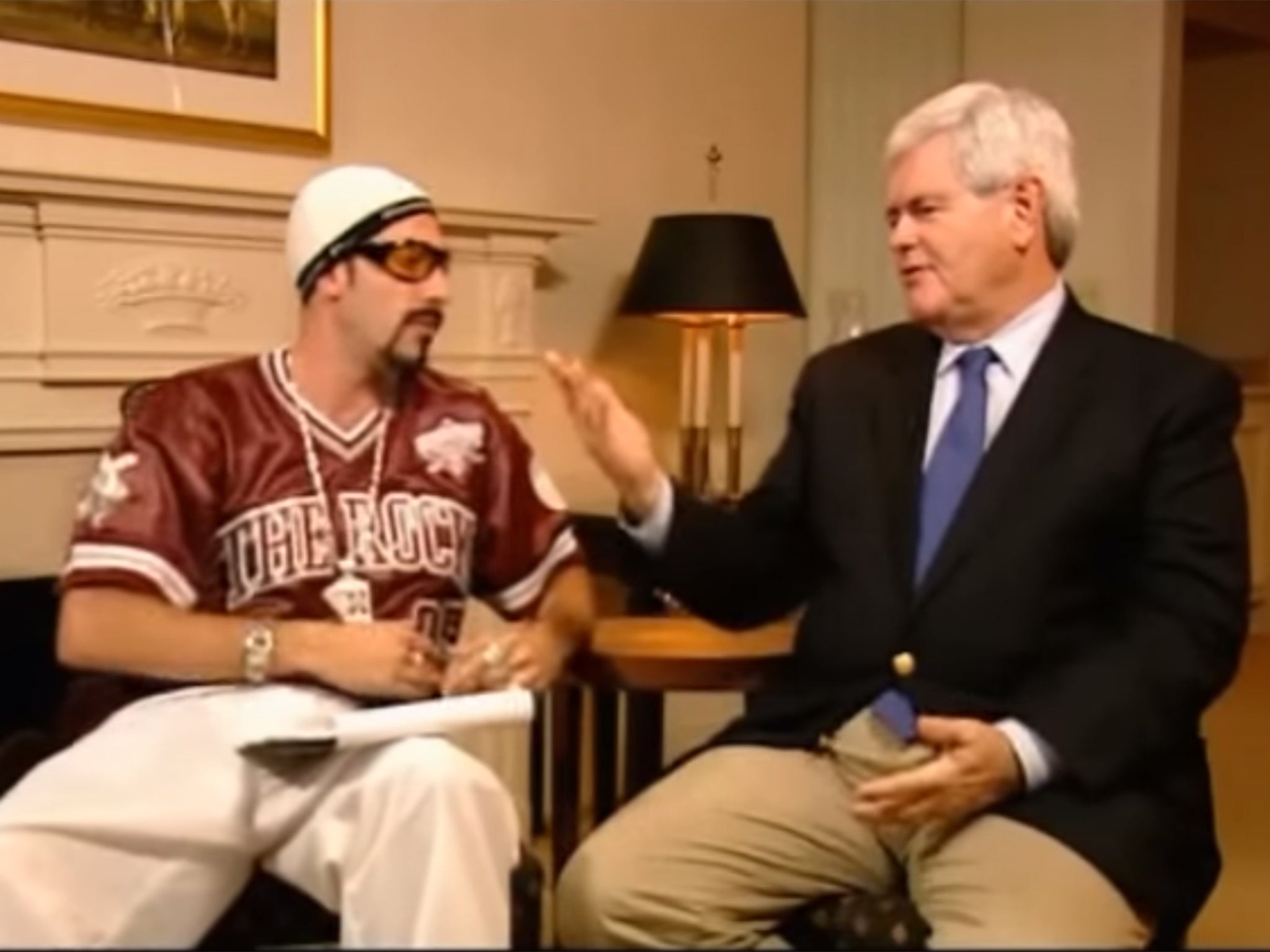
Ali G and Newt Gingrich (Da Ali G Show, 2003)
There are several ways for politicians to “handle” a Sacha Baron Cohen character. They can try their very best to stay on message and to set their interviewer straight. They can realise he’s not on the up-and-up, and choose to go along with the gag. Or they can take off their microphone and exit the interview. The former speaker of the United States House of Representatives and presidential candidate Newt Gingrich chooses here the first strategy, patiently explaining that welfare recipients shouldn’t get raises, that fathers should support their children “even after they’re born” and that Ali G’s concerns about the potential for a female president might be a bit sexist. He does, however, seem pretty irritated that he has to keep spelling his name.
Ali G and Pat Buchanan (Da Ali G Show, 2004)
The former presidential speechwriter, failed presidential candidate and conservative political pundit Pat Buchanan took the second route for his interview with Ali G – you can almost see him make the decision, in a baffled cutaway during one of Ali’s nonsense introductions, to just roll with it. And it is that perhaps ill-advised choice – to go along with his host’s malapropisms, rather than correct him – that leads Buchanan to tell his host, who seems to have conflated the abbreviations “BLT” and “WMD”, that Saddam Hussein was, “at one time, he was using BLTs on the Kurds”. (Cohen’s follow-up is, typically, priceless: “Is it ever worth fighting a war over sandwiches?”)
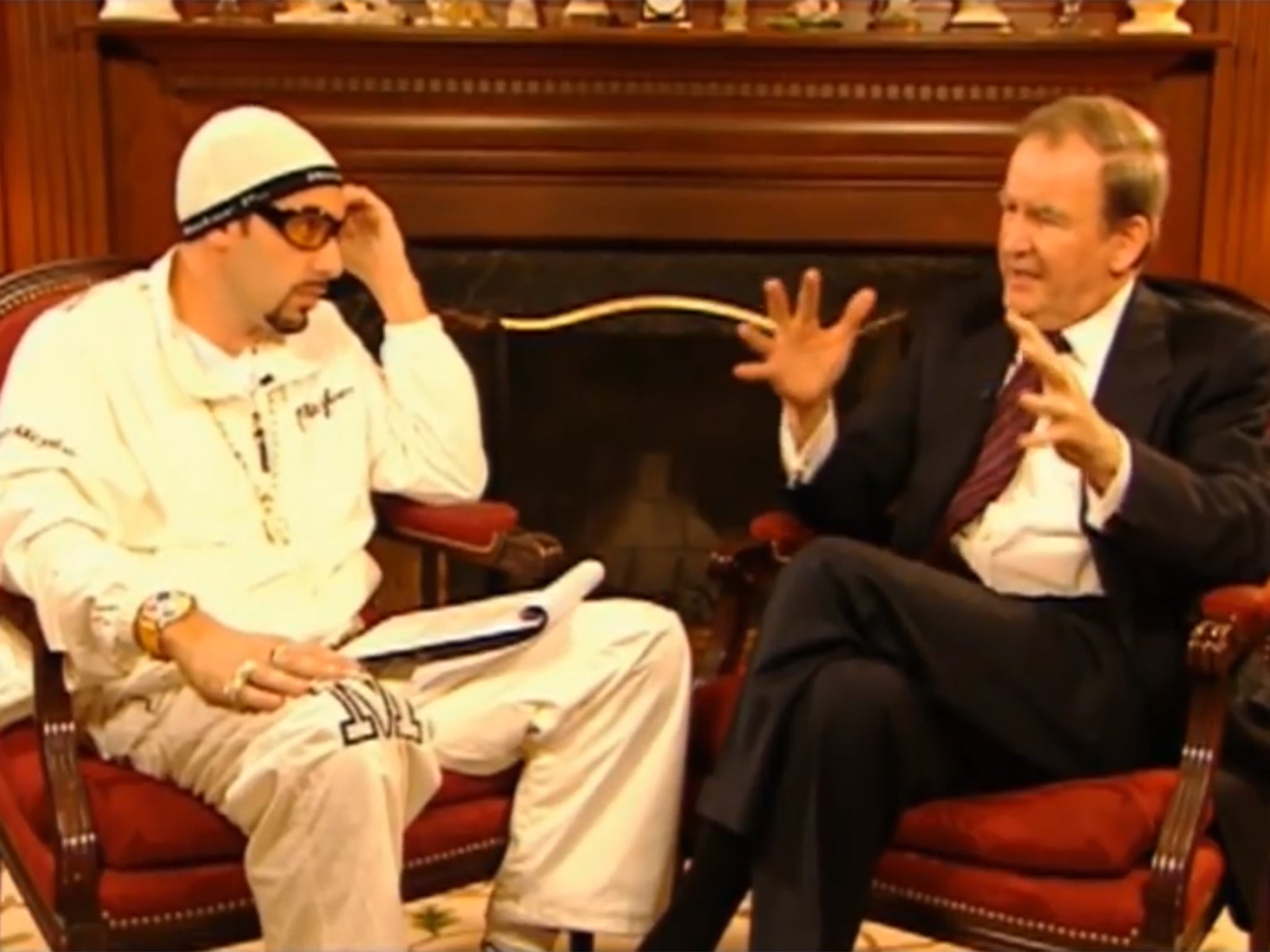
Ali G and Christine Todd Whitman (Da Ali G Show, 2004)
Cohen’s 2004 interview with Christine Todd Whitman, the former New Jersey governor and former head of the Environmental Protection Agency under president George W Bush, begins with a misunderstanding, as Ali G believes her to be a “husband and wife team” — “Christine and Todd Whitman”. And it degenerates from there. But Whitman does her best to explain to her interviewer not to worry that the cold and darkness of Alaska is evidence of the depletion of solar energy. (“Well, that’s because of the rotation of the Earth. It’s not because the sun is running out.”) But this one is probably best remembered for Ali G’s insistence that the Earth’s oceans are polluted because of the faeces of fish and other water creatures – such as whales. “Don’t they make massive pollutions in the water?” he wonders. Whitman reiterates that there are other, greater causes, but does grant his point: “Yeah, they’re big, they’ve got to be massive.”
Ali G and James Baker (Da Ali G Show, 2003)
As the secretary of state under president George HW Bush, James Baker played no small hand in the first Gulf War, so he seems particularly thrown when Ali G asks about the decision to invade Iran. “They’re two different countries, Iraq and Iran,” he explains, with more than a little testiness in his voice. He isn’t receptive to Ali G’s suggestion for how to clear up that confusion in the future: “Do you think it would be a good idea if one of them changed their name to make it very different sounding from the other one?” Ali’s confusion over Baker’s carrot-stick analogy for describing foreign policy – “Money is better than carrots,” Ali argues — is, shall we say, stubborn.
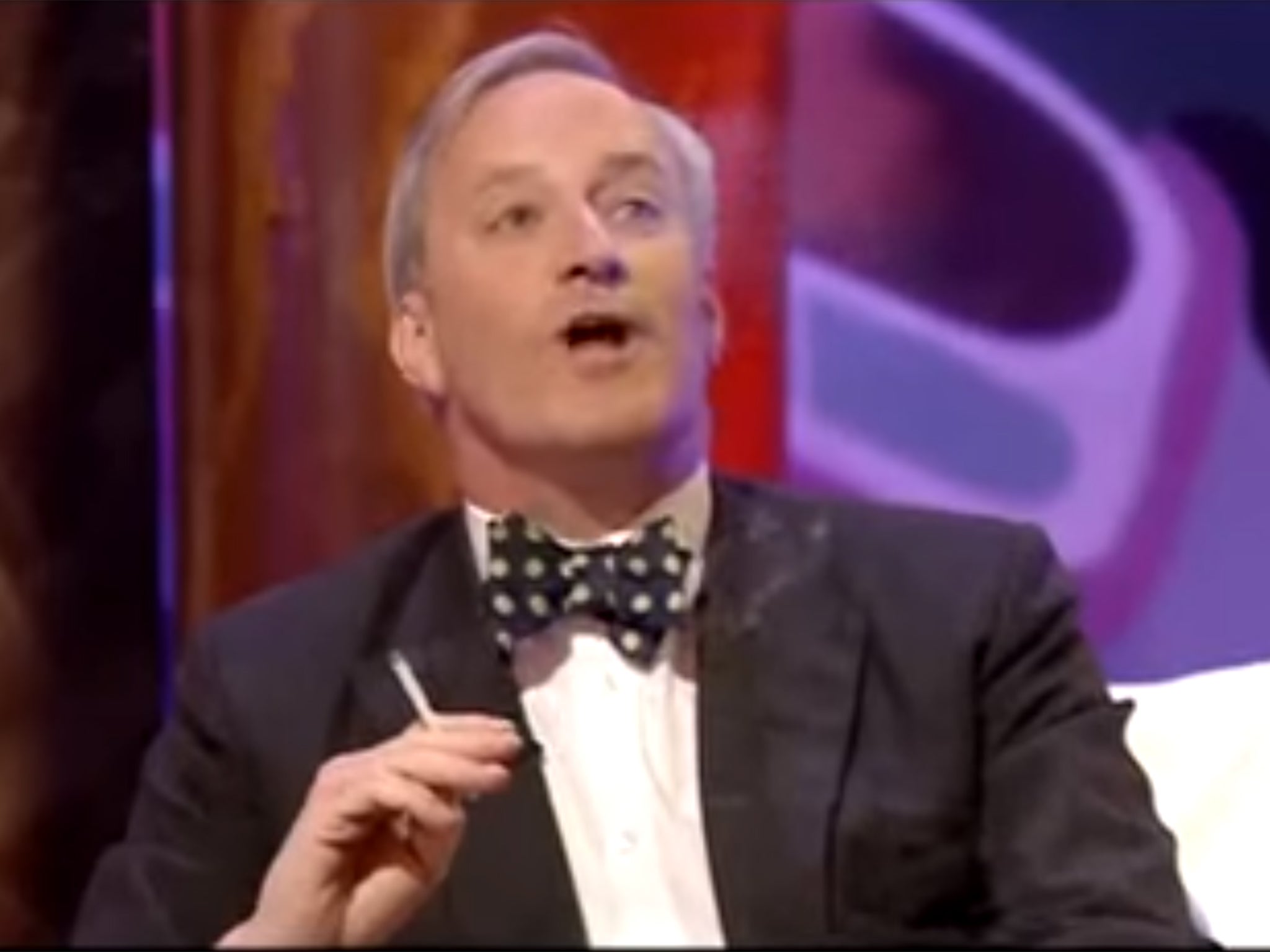
Ali G and Neil Hamilton (Da Ali G Show, 2000)
Cohen first explored his characters, and the ways they could implode the niceties of the television interview, in the 2000 British TV iteration of Da Ali G Show (its second and third seasons began airing three years later on HBO). In its first episode, he welcomed the “libel case loser and totally disgraced MP” Neil Hamilton, who had resigned from parliament six years earlier after a report that he had taken payoffs for lobbying. (He also tried and failed to sue The Guardian, which broke the scandal, for libel.) “Now that you is unemployed, you must puff a little more, right?” Ali G asked Hamilton, inviting the politician to share a joint with him – which, to Cohen’s surprise, he did.
Ali G and Sir Rhodes Boyson (The 11 O’Clock Show, 1999)
Cohen and Ali G first broke out on the British Channel 4 late-night comedy series The 11 O’Clock Show (also an early showcase for the comedian Ricky Gervais), where the character took on other, older, crustier British politicians. Perhaps the most memorable of those interviews was his chat with Sir Rhodes Boyson, a conservative member of parliament who established those bona fides early by acknowledging that he approves of disciplining students by caning them. As in the Hamilton interview, Cohen almost seems thrown by the guest’s response. (“You do?” he laughs. “Wicked, man.”) But he quickly shifts to the only sensible follow-up: “Do you not think, Sir Rhodes, that if you’re getting caned in school, you can’t concentrate as well?”
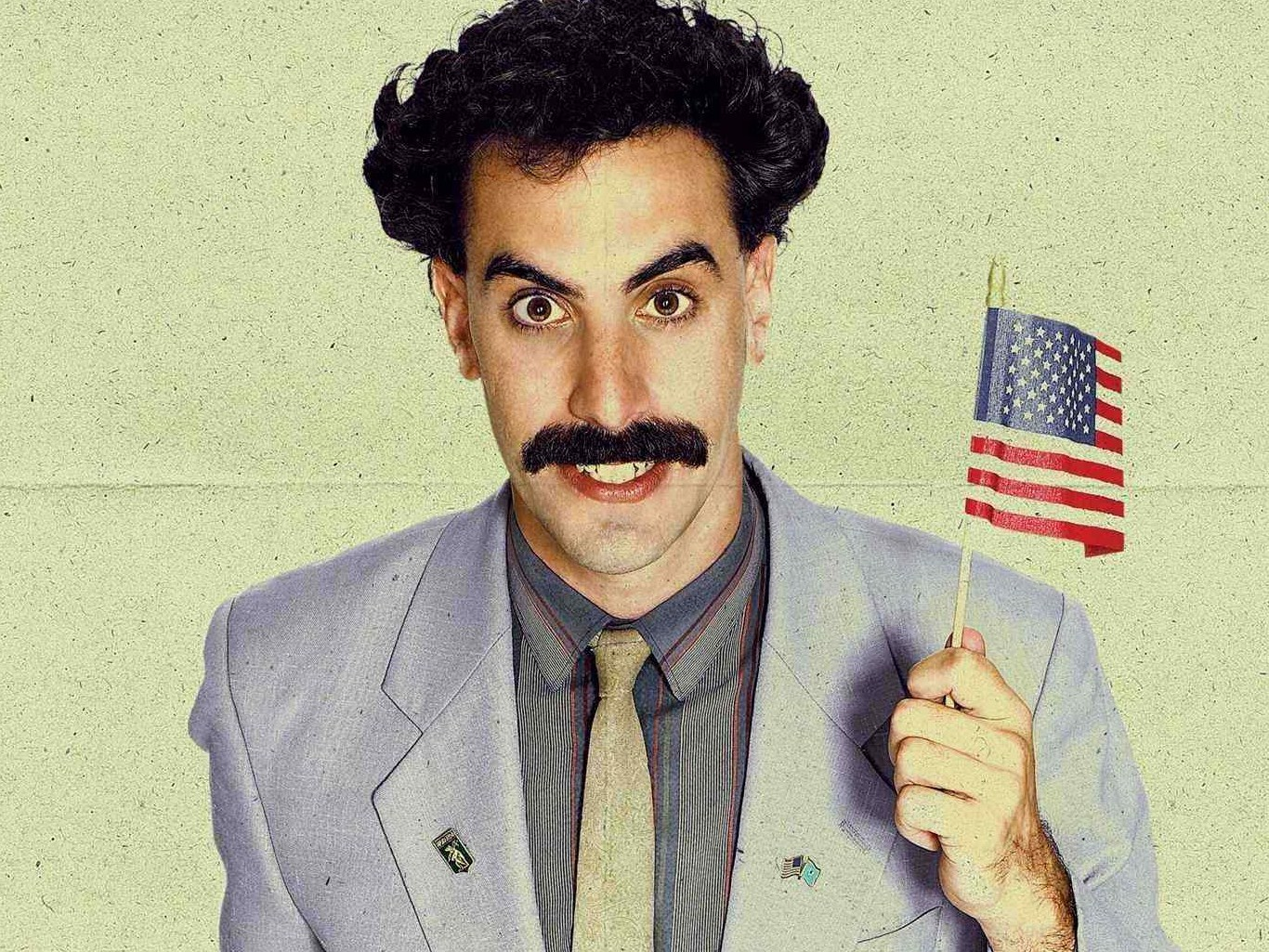
Borat and James Broadwater (Da Ali G Show, 2004)
Cohen also spent some time as the Kazakh reporter Borat Sagdiyev on Da Ali G Show, who in turn explored the strange world of US politics – “In American, woman can vote, but horse cannot!” – by profiling James Broadwater, then a Republican candidate for the US House of Representatives for Mississippi. The candidate makes the genuinely regrettable decision to bring Borat with him to knock on doors and help him sell himself. (“I will not leave until you swear on the eyes of your child that you will vote for him!”) But no damage Cohen can do tops what the candidate does to himself in their one-on-one interview. When Borat asks which religion he “must choose” to go to heaven, Broadwater tells him, “The Christian Bible says Jesus Christ is the only way to heaven”; when Borat follows up by asking, “The Jews, will they go heaven or hell?” Broadwater responds, after a heavy sigh, “Well, I would have to say that they would go to hell.”
Broadwater lost that primary and also the primary for a seat in the Mississippi Statehouse three years later. And another congressional primary in 2008. And the primary for Mississippi governor in 2011. And the race for state Senate in 2015.
Brüno and Ron Paul (Brüno, 2009)
The commercial success and cultural ubiquity of Cohen’s 2006 film Borat might have made any further attempts at ambush interviews impossible – you’d think. But his 2009 film spotlighting another Da Ali G Show character, the out-and-proud fashion journalist Brüno Gehard, landed on a target who seemed safely outside the actor’s demo: Ron Paul, then a two-time losing presidential candidate and US congressman from Texas, who continues to face trouble for distributing racist and homophobic material. Brüno’s interview with Paul begins innocently enough, but it is quickly interrupted by a “technical issue”, sending the two men to an adjacent bedroom – where Brüno attempts to seduce him. Ultimately, the joke is as much Brüno’s ignorance as Paul’s embarrassment (“I couldn’t even shtup RuPaul!”), although Paul’s angry and repeated use of a homophobic slur isn’t pretty.

Ali G and Ralph Nader (Da Ali G Show, 2003)
Cohen’s 2003 interview with Green Party candidate Ralph Nader, ramping up for yet another fruitless presidential run, is a rare interview in which the subject doesn’t embarrass himself with hypocrisy but with mere silliness. Ali G expresses his cynicism that the rainforests, a favourite topic of Nader’s, are actually worth saving; after all, “It must be crap living there, no Mickey D’s, no KFC ... who’d want to stay there, you’d have to be mental.” Nader chooses to fully engage in the conversation – which leads to the unexpected sight of a respected consumer advocate and candidate discussing the difficulties of getting cows to break wind into boxes for the sake of harnessing energy.
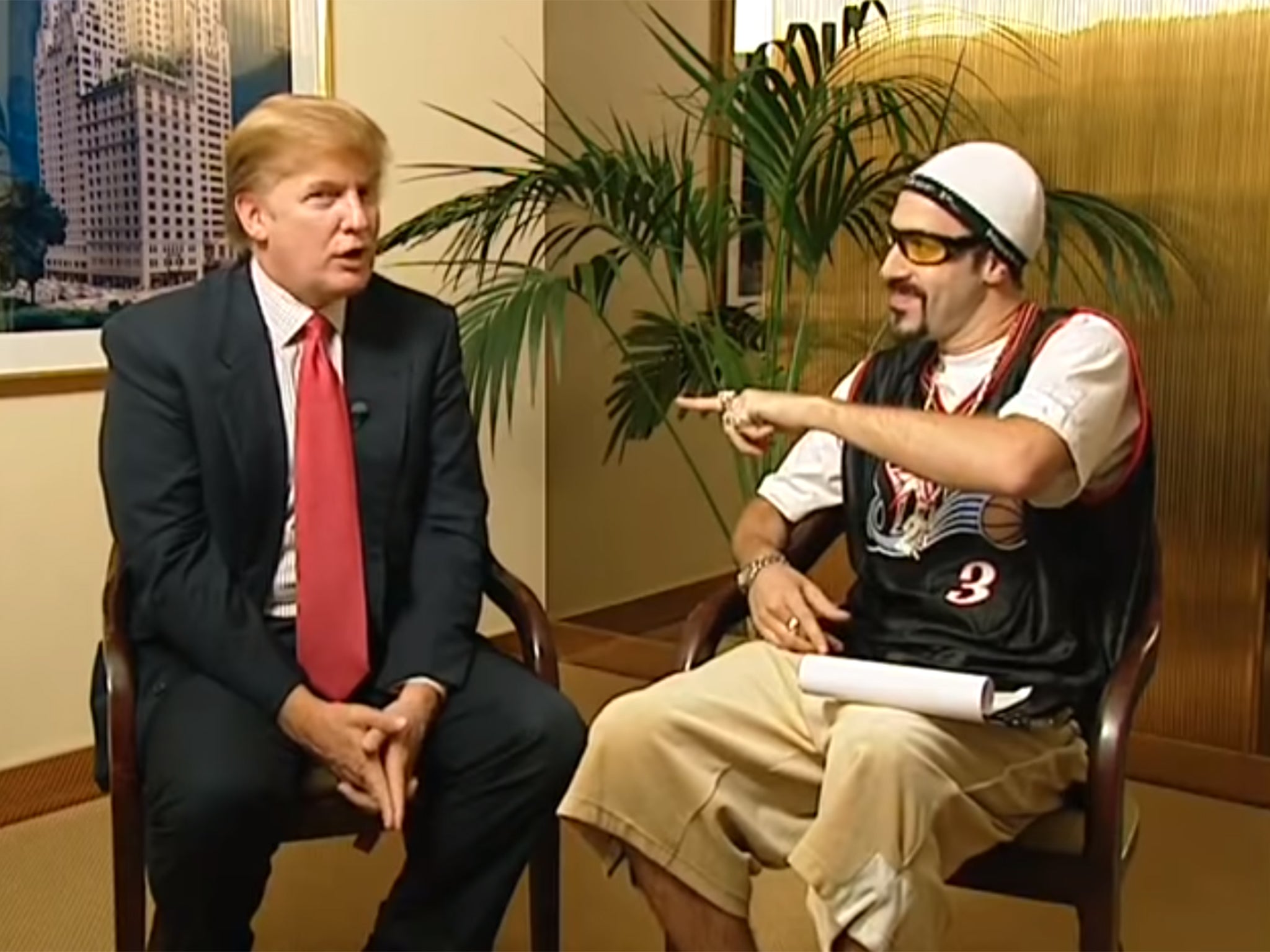
Ali G and Donald Trump (Da Ali G Show, 2003)
Perhaps the most noteworthy of Cohen’s interviews – though it didn’t seem so at the time – was his 2003 encounter with Donald Trump, then the star of The Apprentice. The topic of the episode was not politics, but business, and Trump doesn’t seem terribly receptive to the comedian’s hard sell of his “ice cream glove” idea. Trump departs quickly, and he later said that he was “the only person who immediately walked out of my Ali G interview”. Cohen, in turn, said that the clip had been edited down from about seven minutes, which was “quite a long time” for an Ali G interview.
‘Who is America?’ is on Channel 4 from 16 July
© The New York Times
Join our commenting forum
Join thought-provoking conversations, follow other Independent readers and see their replies
Comments